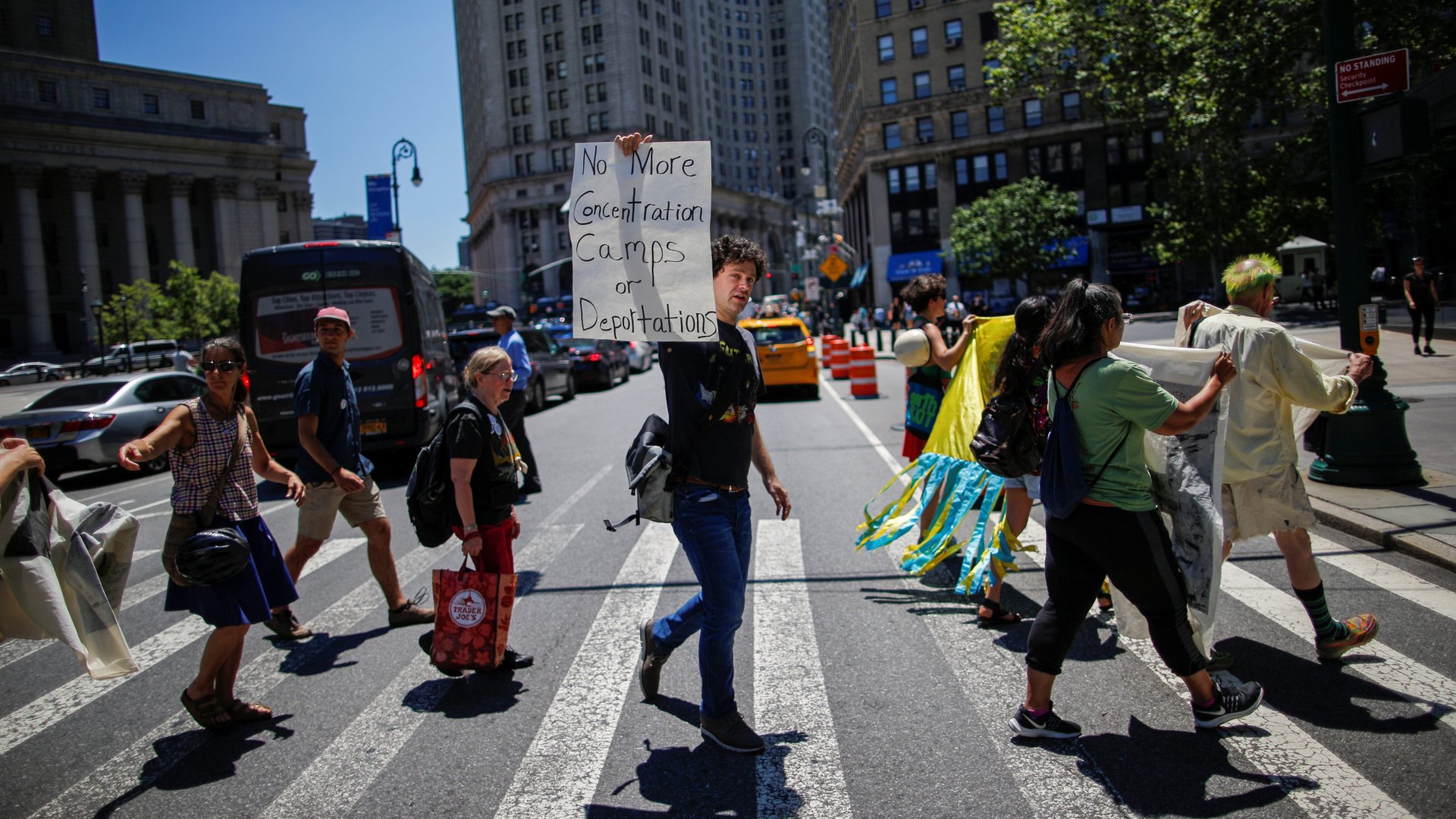The best ways to help immigrants in the US caught up in ICE raids
As US authorities plan nationwide raids targeting thousands of immigrants on Sunday, advocates and sympathizers say there are a variety of ways they can help the undocumented avoid getting caught up in the federal action—and support those who do get ensnared.


As US authorities plan nationwide raids targeting thousands of immigrants on Sunday, advocates and sympathizers say there are a variety of ways they can help the undocumented avoid getting caught up in the federal action—and support those who do get ensnared.
The raids, which had originally been scheduled for last month, will target immigrants who have been issued a deportation order, the New York Times reported. But Immigration and Customs Enforcement (ICE) officers who will carry out the actions are also expected to arrest anyone they encounter without valid immigration documents. “We are really specifically looking for bad players, but we are also looking for people who came into our country not through a process, they just walked over a line. They have to leave,” Donald Trump told reporters today.
Here are some ways to help people entangled in Trump’s latest offensive against illegal immigration, according to legal experts:
Spread the word about immigrants’ rights
Regardless of their legal status, immigrants have rights under US law. Several groups, including the American Civil Liberties Union and the National Immigration Law Center, have put together guides on how immigrants can protect themselves. Some, like New York’s Brooklyn Defender Services and the ACLU, have issued easily shareable videos.
All have the same recommendations for immigrants: If ICE officers show up at your door, don’t open unless they have a warrant signed by a judge.
Help immigrants prepare
Allies can also help immigrants prepare for a potential ICE arrest, said Stephen Yale-Loehr, a Cornell University law professor. Having a communication plan to alert family and friends of an arrest is one of the recommendations from the New York State Leadership Council, an advocacy group led by undocumented youth.
Other ways to show support are by attending a detained immigrant’s court hearing, and raising awareness about an arrested immigrant’s case. For some immigrants, media attention and public pressure appears to have contributed to authorities’ decision to letting them remain in the US.
Contribute to their legal bills
Having a lawyer will greatly improve the chances of avoiding deportation. Some immigrants may qualify for one of the legal avenues to stay in the US, even those who crossed the border without papers. Those who want to help can donate their time or money to one of the many organizations that provide legal aid to immigrants.
Cornell Law School has put together a list of organizations that use volunteers. They include groups such as RAICES, a non-profit that focuses on children, and Free Our Neighbors, which raises fund to help immigrants pay bonds. Charity Navigator, the charity-assessing group, has its own list of organizations that help immigrants.
Report what you see
Bystanders to an arrest shouldn’t interfere. They can document what is happening and ask questions, according to United We Dream, an immigrant youth group. It recommends that witnesses write down officer badge numbers, their vehicle’s license plates, and notes about what they see. They also suggest shooting video, though they advise to follow indications from law-enforcement officers, because state rules on that vary.
United We Dream has a hotline for immigrant advocates to report information they gather. The group verifies the data and uses it to generate real-time alerts shared with members of its network in affected communities. Long term, the information helps keep track of ICE activities, for example, where local law enforcement is working with federal agents, says Cynthia Garcia-Castro, United We Dream’s deportation defense manager.
Other groups have set up similar hotlines to report abuse.
Don’t spread rumors
One thing to avoid is sharing information about ICE activities you’re not certain about. It can spread unnecessary fear and panic. Last year, one tweet with false information went viral, traumatizing a Boston immigrant community for months, according to immigration lawyer Matt Cameron, who tweeted about the incident.